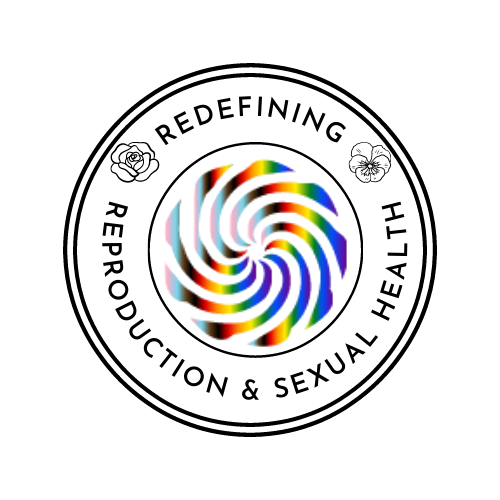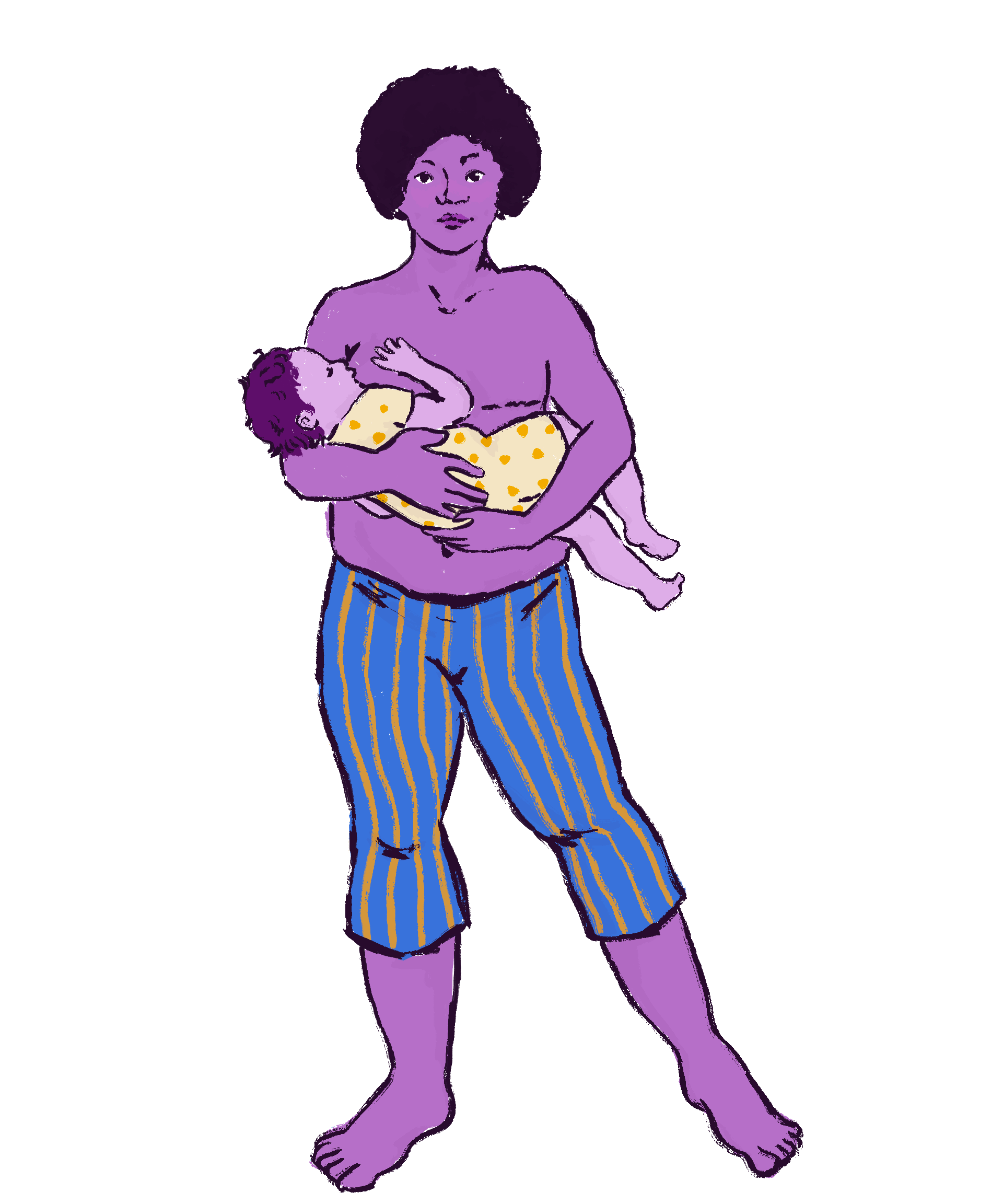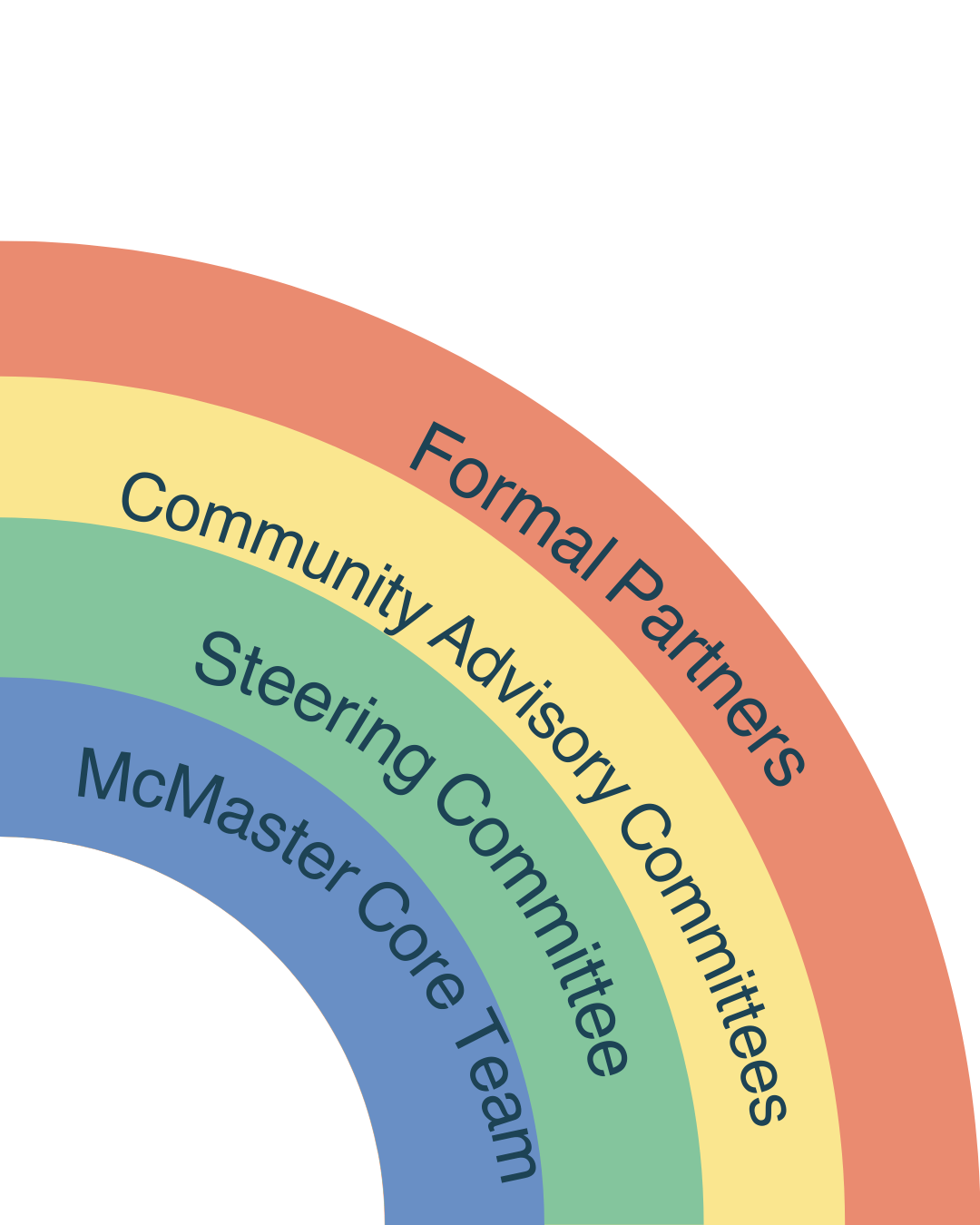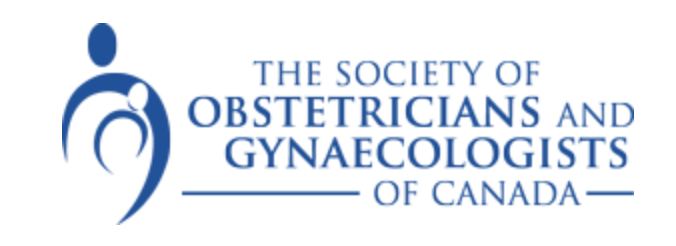Welcome!
〰️
Bienvenue!
〰️
Boozhoo!
〰️
Aaniin!
〰️
Atelihai!
〰️
Pee-piihtikweek!
〰️
Welcome! 〰️ Bienvenue! 〰️ Boozhoo! 〰️ Aaniin! 〰️ Atelihai! 〰️ Pee-piihtikweek! 〰️
What is REDEFINE?
In 2022, a group of researchers, clinicians and educators were becoming increasingly uneasy with the lack of inclusivity within academia and health care.
Many of us have attempted to explore ways to make our language more gender-inclusive as a means to affirm and hold space for diverse identities, but we have encountered pushback, uncertainty, and contradiction; often lacking research-based evidence or guidance. To address this gap in evidence, our team sought to create guiding principles and educational materials that could be used during sexual and reproductive research. Our goal remains clear- to provide resources informed by empirical evidence gathered from those who share lived experiences, navigating this complex system.
-
The REDEFINE project is located at McMaster University on the traditional territories of the Mississaugas of the Credit and Haudenosaunee nations (Mohawks (Kanien'kehá:ka), Oneidas (Onyota'a:ka), Onondagas (Onoñda'gegá), Cayugas (Gayogo̱hó꞉nǫʼ), Seneca (Onöndowa'ga) and Tuscarora(Skarù:ręˀ)) within the lands protected by the Dish With One Spoon wampum agreement and Between the Lakes Treaty No. 3 (1792).
Although centered at McMaster University, the REDEFINE study team and community advisory groups spans northern Turtle Island.
-
From the beginning, it was crucial to the researchers that the communities marginalized by the current language usage be centered in this work. Transgender, non-binary, and Two-Spirit individuals are often excluded from pregnancy care, sexual health, family planning, and related research. This exclusion is partly due to the gendered language used by providers, researchers, and health systems. The REDEFINE study aimed to develop evidence and patient-informed guidance on gender-inclusive language in reproductive care.
-
Two priorities that structured this study were:
Supporting transgender, nonbinary and Two-Spirit people in reproductive care due to their historic and ongoing exclusion and discrimination within health care
Upholding the importance of trans people and cis women’s health given their underrepresentation and minimization by the broader healthcare system.
We believe that propelling the most marginalized gender identities (i.e., transgender, nonbinary, and Two-Spirit individuals) within reproductive care will improve gender-inclusive care and gender-based needs for all patients.
-
Led by the McMaster Midwifery Research Center (MMRC) and funded by the Social Sciences and Humanities Research Council (SSHRC) Grant, the REDEFINE project launched in spring 2022, in partnership with the Canadian Midwifery Association (CAM) and the Society of Obstetricians and Gynaecologists of Canada (SOGC).
Funding for the REDEFINE study came from SSHRC and the McMaster Gender and Health Initiative 2023.
Led by Beth Murray-Davis, the main REDEFINE research team consists of principle investigator Abi Kirubarajan (2022-2025), research coordinator O.G. Thorne (2023 - 2026), and postdoctoral research fellow Jen Goldberg (2024 – 2026).
Beth Murray-Davis was supported by a Limited Term Chair in Midwifery Research at London Health Sciences Centre, Children’s Health Foundation from 2023-2025.
Given the prioritization of trans, nonbinary, and Two Spirit folks, the REDEFINE study hired LGBTQ+ consultants, Riley (2022 – 2024) and Jenna Bly (2024-2026) and a Two Spirit consultant, Ben Mitsuk (2022- 2026), to continuously engage with the project.
Additionally, the REDEFINE Scoping Review has been supported by Joanne Rack (MMRC Fellow Member) and Brian Lam.
Steering Committee
The REDEFINE steering committee is a multidisciplinary group consisting of 10 academics and healthcare professionals from various backgrounds, such as Midwifery, Gynecology and Obstetrics, Family Medicine, Psychiatry, Surgery, Public Health, and Pediatrics.
Wanting to ground the study in community, REDEFINE created a call for trans, nonbinary, Two Spirit and gender-diverse community members who have engaged with “Canada’s” reproductive and sexual healthcare system to make community advisory tables. Through this call, two advisory committees were created. The first advisory committee was for Two-Spirit individuals, and the second table was for trans, nonbinary and gender-diverse folks. These groups have given suggestions, feedback, and critique at various steps of the project, such as the public survey and focus group questions, as well as aiding in the final curation of the REDEFINE recommendations.










